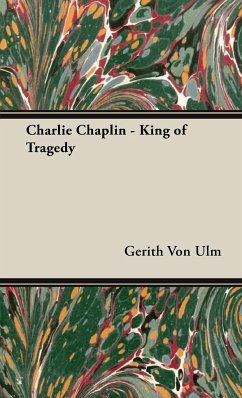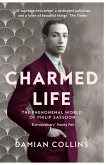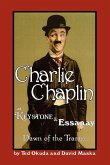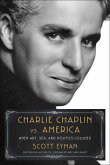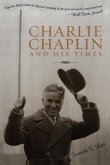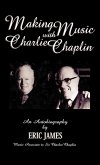Foreword: CHARLES SPENCER CHAPLIN, film comedian extraordinary and the most widely known figure in the history of motion pictures, holds the distinction of enduring for twenty-five years as the out standing, if somewhat enigmatic, personality of the screen. To retain such universal popularity, in its deeper sense, in an industry gradually but surely taking its place as an integral part of the arts, an industry which all too often raises its favorite to stardom overnight only to hurl him back into oblivion with equal celerity, this achieve ment of Charlie Chaplin s becomes worthy of serious consideration. What manner of man is this who sits securely upon his golden throne of millions poured into his coffers by a world-wide audience? What sort of man can defy any challenge to the universal appeal of a single characterization, who can resist for ten years the more modern medium for expression, the transition of silent films into talking pictures? Surely this sustained hold upon the public taste, the public affection, implies a certain artistry genius, if you will. And there are few to deny that Charlie Chaplin has brought into bold relief the ancient art of pantomime as a portrayal of modern, human life. Chaplin has been the subject of more writing and fewer accurate delineations than most of his contemporaries throughout the years. He has en joyed the paradoxical status of being the man ev erybody knows yet nobody knows. Protected by a self-imposed isolation in his private life, he has had, nevertheless, certain dramatic phases in his life, two marriages and their subsequent dissolu tions, emblazoned on the front pages of American newspapers for weeks and months at a time. And when we reflect upon the adverse publicity to which he was subjected at these times, some of it careless of the truth, it is small wonder that Charles Chaplin is wary of revealing himself to the serious biographer or that he bends over back ward in expurgating any story about himself which is submitted to him for his approval. A true biography of him must, of necessity, be an unauthorized one to survive with any value as an accurate chronicle. Because of this consistent discouragement to biographers, few stories of any length, or what is more important, strength, have been uncovered in this writers search for material pertinent to this book. One, a mild little book written by W. Dodgson Bowman in 1931, makes no effort to trace the pattern of the man behind the artist and succeeds in not tracing it. It can be assumed that the manuscript of this book was either censored by its sub ject or prepared with the wish uppermost in the mind of the writer not to off end. Consequently, it has scant value in depicting the living, vital Chaplin. The most colorful and dramatic, the most re vealing and not always creditable, episodes in the life of the King of Comedy are veiled by meager paragraphs or ignored with an airy sycophancy which destroys the value of the book as a true biography. Another, a magazine serial written in a state of pique by Carl Robinson after his dismissal by Charlie in Algiers in 1931, can be considered only as a slap on the wrist. That Robinson received a goodly sum in advance for & quot; telling all& quot; ( he could not tell it) is not surprising, for revelational accounts of Charlie Chaplin are as rare as blue-and white-checked nightingales laying polka-dot eggs. And Carl Robinson, never in the intimate confidence of his employer, knew him only as well as the average acquaintance could. Throughout eighteen years of Chaplin s twenty- five years on the screen, there has been one employee, one person who actually knows Chaplin, the man. That this employee has little understanding of the complex nature of an artist, takes nothing from the facts.
Hinweis: Dieser Artikel kann nur an eine deutsche Lieferadresse ausgeliefert werden.
Hinweis: Dieser Artikel kann nur an eine deutsche Lieferadresse ausgeliefert werden.

